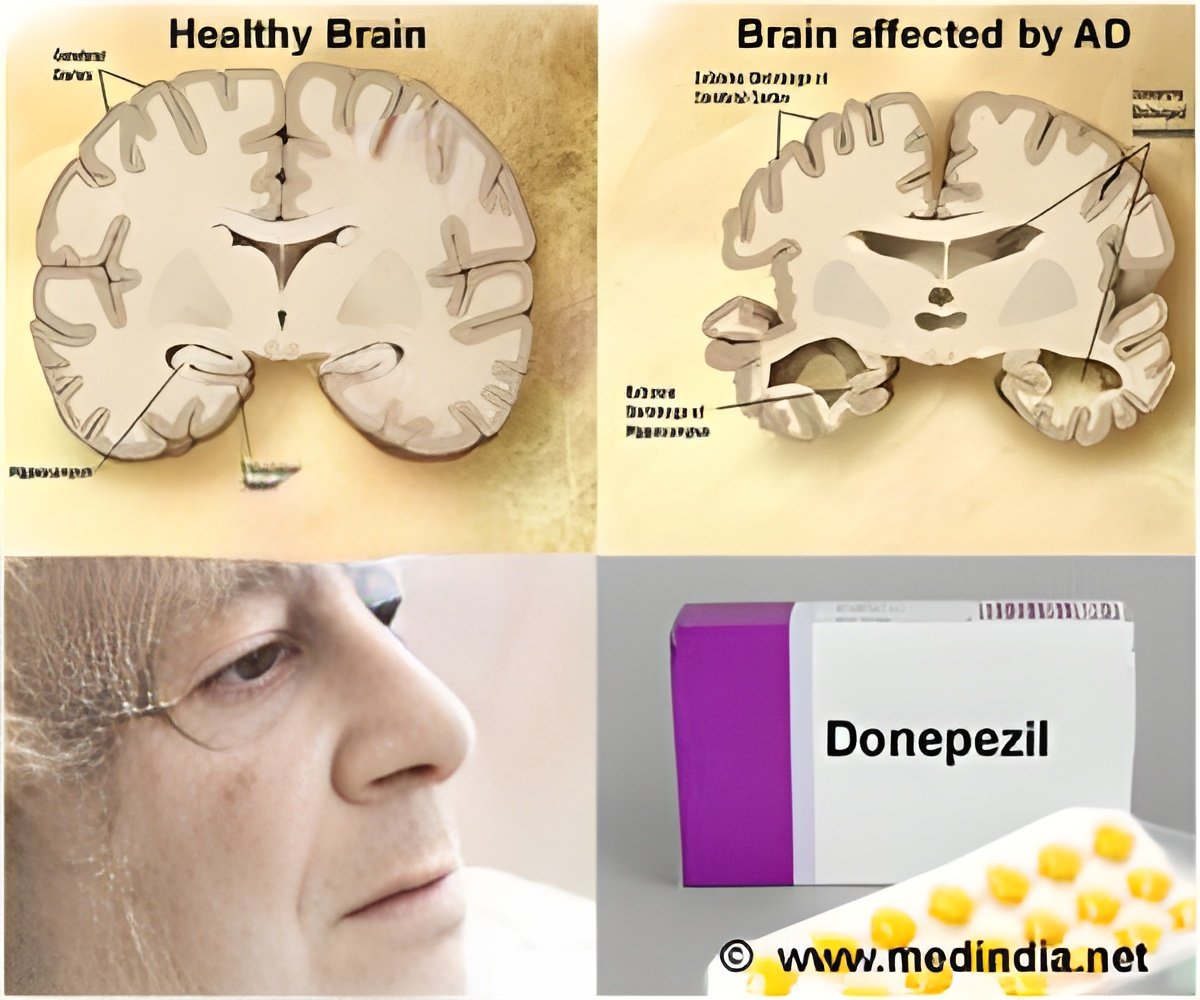People with specific gene mutation may have a cognitive decline while taking donepezil drug for Alzheimer’s treatment.

‘Donepezil drug for Alzheimer’s disease may accelerate cognitive decline in people who carry specific gene mutation. It is advisable to have a genetic test before taking the drug.’





Aricept and is the most-prescribed medication for Alzheimer's.Donepezil was tested as a possible treatment for mild cognitive impairment in a large, federally funded study published in 2005, but it was not approved by the FDA. Still, doctors have often prescribed the drug "off-label" -- meaning that it is not approved for that specific disorder -- for their patients with mild cognitive impairment.
From data collected during the 2005 trial, the researchers looked at the association between BChE-K and changes in cognitive function. Using two tests that measure cognitive impairment, the Mini-Mental State Examination and the Clinical Dementia Rating Sum of Boxes, they found that people with the genetic variation who were treated with donepezil had greater changes in their scores than those who took placebos. They also found that those who took donepezil had a faster cognitive decline than those who took the placebo.
Physicians are increasingly using personalized medicine, including pharmacogenetics -- the study of how genetics affect a person's response to a drug -- to tailor their patients' care. The findings reinforce the importance of physicians discussing the possible benefits and risks of this treatment with their patients.
Advertisement













